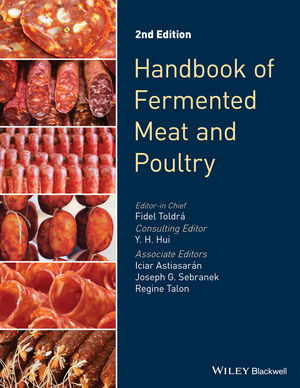CDA, DNR seek public input on draft of Natural and Working Lands Strategic Plan
Once comments are reviewed and incorporated, the Strategic Plan for Climate-Smart Natural and Working Lands will be released in early 2023.

Courtesy of the Colorado Department of Agriculture
The State of Colorado is seeking comment from the general public, producers and other members of land management and agricultural communities on the draft Strategic Plan for Climate-Smart Natural and Working Lands. The Strategic Plan was developed by the Colorado Department of Natural Resources (DNR), Department of Agriculture (CDA), Colorado State Forest Service, Colorado Natural Heritage Program, and stakeholders across the state. As directed by the Colorado Greenhouse Gas Pollution Reduction Roadmap, the Strategic Plan identifies priority actions across Colorado’s landscapes to create a climate resilient Colorado.
“Colorado’s lands, including our forests, agricultural areas, rivers, wetlands, and urban greenspaces, play an important role in the carbon cycle and can help us adapt to our changing climate. This initial Strategic Plan gives us a roadmap to strategically protect, restore and manage lands using climate-smart practices,” said Angela Boag, assistant director for climate, forest health and energy at the Colorado Department of Natural Resources.
The Strategic Plan reviews strategies for all of Colorado’s land types, including forests, croplands, rangelands, grasslands and shrublands, wetlands and riparian areas, and urban greenspaces. The Strategic Plan discusses data gaps, no-regrets strategies to reduce emissions and increase carbon sequestration, and the important co-benefits of climate-smart land management.
“We’re seeking input from producers, land managers and the public on this Draft Strategic Plan to make sure these strategies are attainable and align with the goals of Coloradans. The Strategic Plan is meant to create a broader strategic vision to create and conserve resilient natural and working lands and to motivate additional data gathering and research so we can maximize the many benefits of climate-smart land management,” said Kristen Boysen, CDA’s drought and climate specialist.
The comment period is open now and runs through December 16, 2022. Comments can be submitted through an online form. The full plan, comment form, and informational webinar registration links are available at ag.colorado.gov/NWLdraftplan.
DNR and CDA will also host two webinars to recap the Strategic Plan and accept verbal comments, in addition to written comments. The sessions are free and open to the public but attendees must register to participate. Each webinar will cover the same content. All stakeholders are encouraged to review and comment on the Strategic Plan.
Registration links are below and at ag.colorado.gov/NWLdraftplan
- Wednesday, December 7 at 5:30 pm
- Friday, December 9 at 10:00 am
The Strategic Plan was an identified action item in the 2021 Greenhouse Gas Pollution Reduction Roadmap. The lead agencies led open discussions with stakeholders in fall of 2021 to develop key priorities to include in the plan. CDA and DNR facilitated conversations with producers, landowners, and other stakeholders to gather feedback on agricultural parts of the report.
Based on these conversations, the draft includes key actions and strategies for state agencies, local and federal agencies, land managers, researchers, nonprofits, and other stakeholder groups that will help sequester carbon, reduce emissions, and conserve the state’s natural resources and community and economic benefits they provide. Technical experts from Colorado State University, University of Colorado, and other researchers reviewed the draft plan in September 2022.
Once comments are reviewed and incorporated, the Strategic Plan for Climate-Smart Natural and Working Lands will be released in early 2023. From there, the Strategic Plan will support updates to the Greenhouse Gas Pollution Reduction Roadmap and other statewide climate planning processes to ensure they consider the critical role natural and working lands play in Colorado's emissions reduction goals and climate resilient future. The Plan will be revisited every two years with a progress update, and will be reviewed every five years, incorporating new data, local and regional priorities, and feedback from across the state. During this process, the coordinating agencies will continue to facilitate avenues for stakeholder groups to provide feedback on the ongoing revisions to the Strategic Plan.
Sources: Colorado Department of Natural Resources, Colorado Department of Agriculture
Looking for a reprint of this article?
From high-res PDFs to custom plaques, order your copy today!




